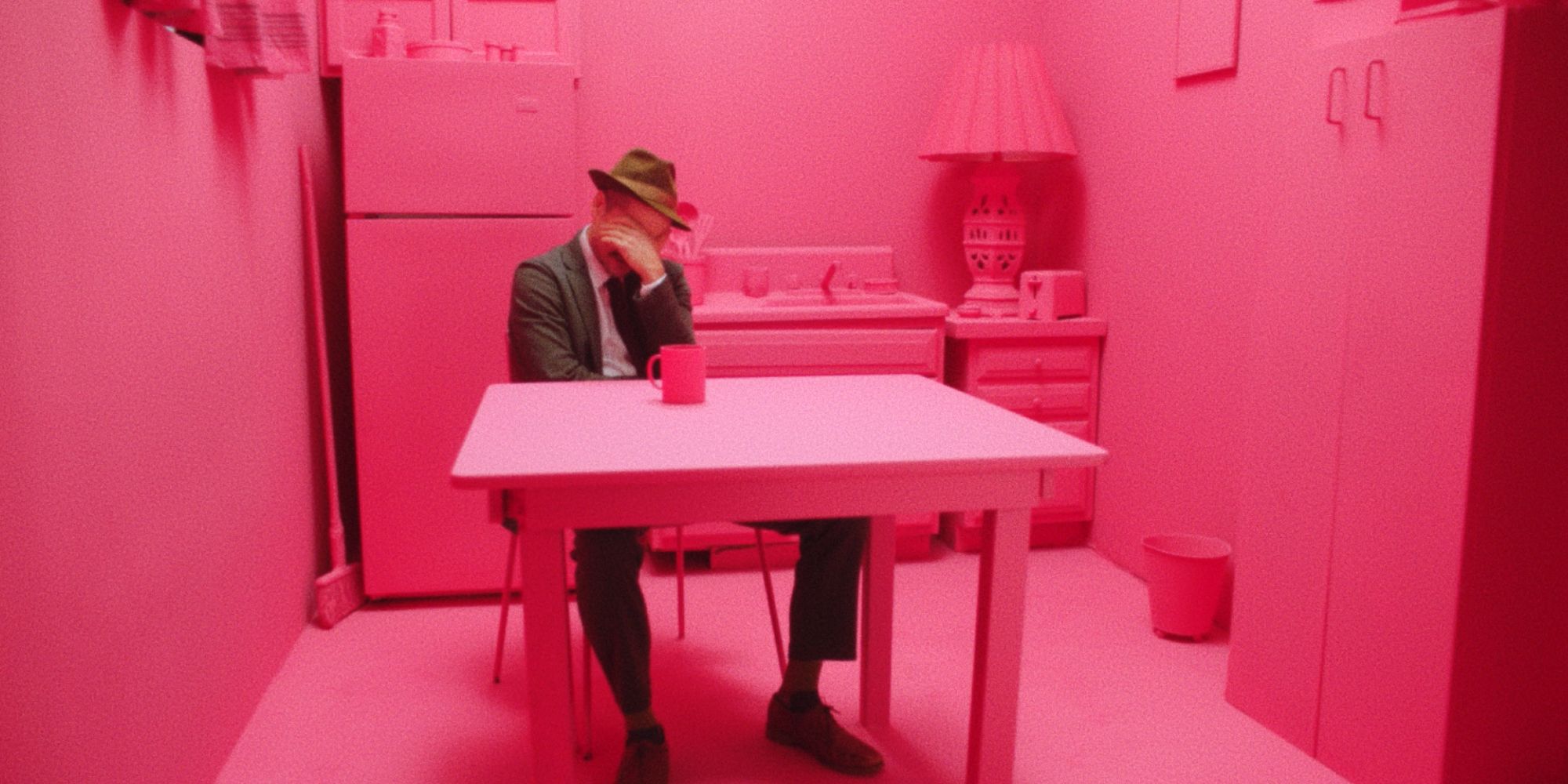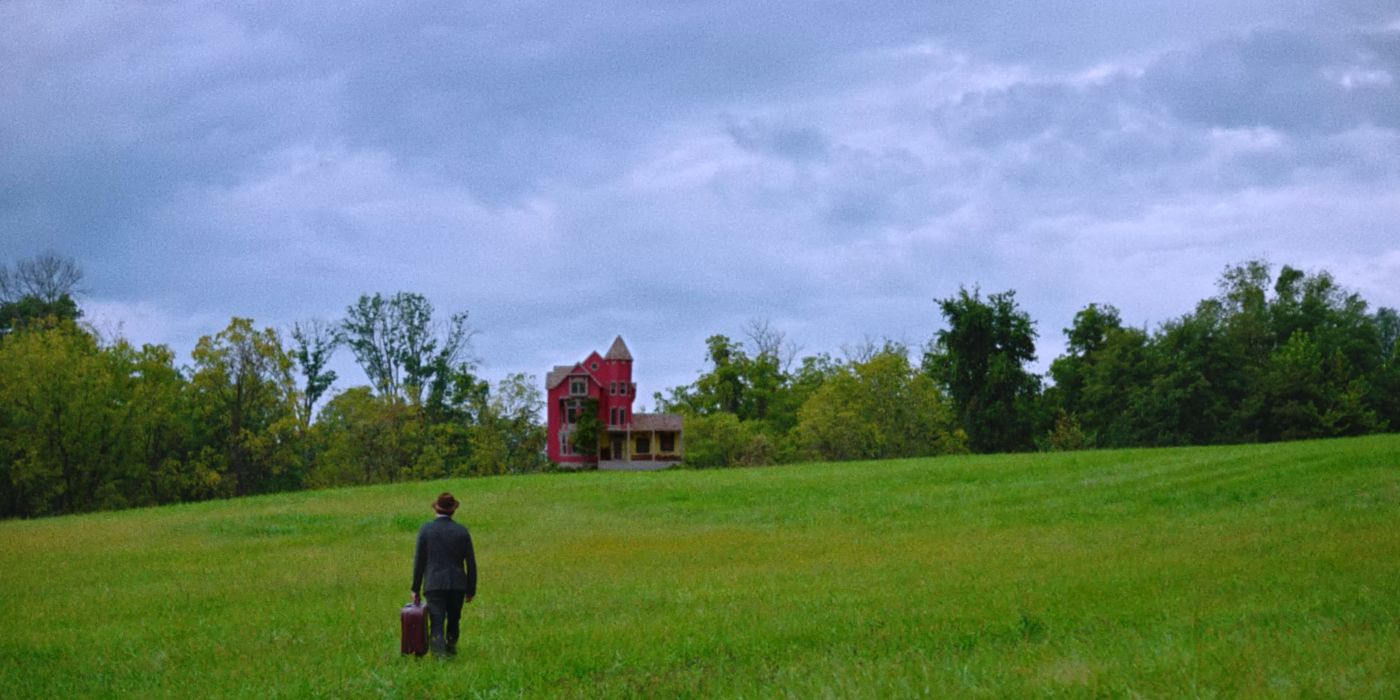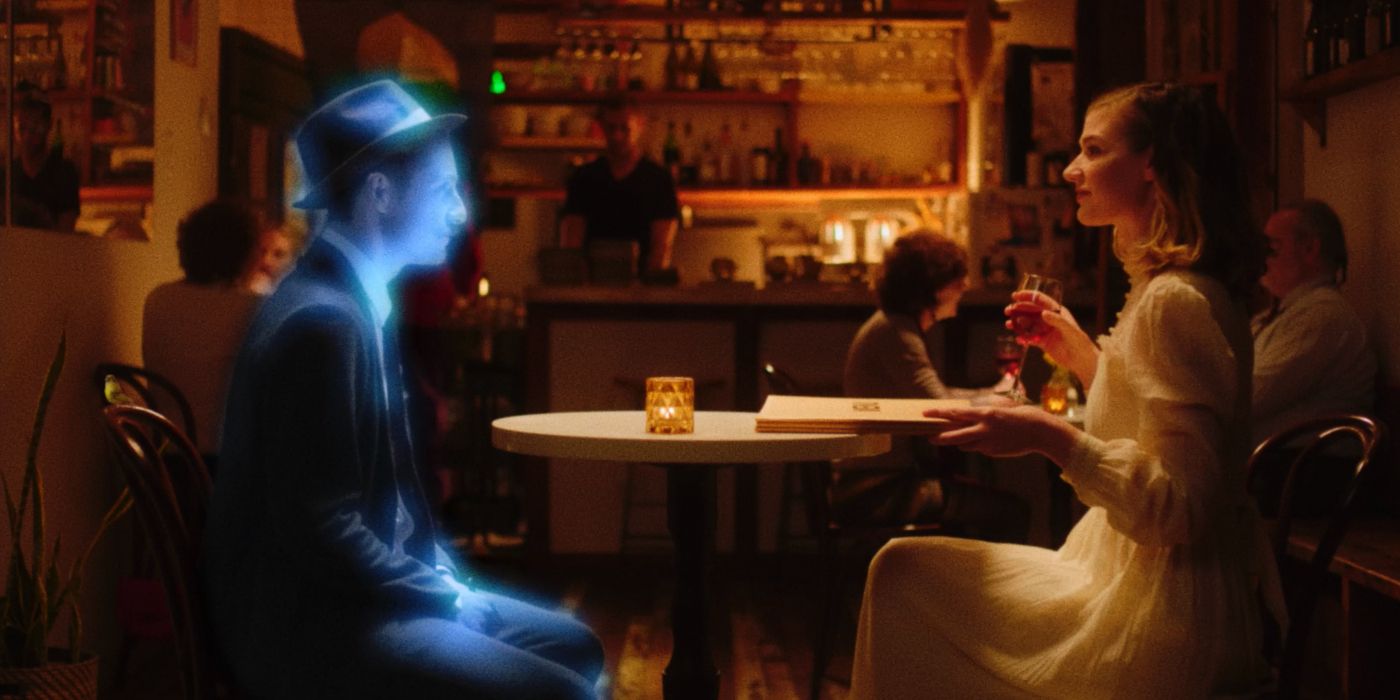Few directors are able to truly grasp dream logic and the surreal flights of fancy that accompany such subject matters. David Lynch’s name comes to mind, given his ability to craft dense, intricate narratives surrounding the imaginary and the waking world, along with the gray area between the two. While the term "Lynchian" is often misconstrued and overused, applied to anything and everything that defies comprehension from a surrealist point of view, this is exactly how Albert Birney and Kentucky Audley’s Strawberry Mansion can be defined. Combining the delightful and the absurd, Strawberry Mansion is a sweet triumph, an ode to imagination, and a manifesto on the wonders of love.
The year is 2035, yet every frame in Strawberry Mansion is saturated with nostalgia pieces — as if the future isn’t quite ready to let go of the past. James Preble (Audley) is a dream auditor for the U.S. government; his job is to evaluate the taxes levied on items in dreams. Yes, the future is peaked with capitalist invasions into personal dream spaces and every individual must upload their dreams via a device so as to allow the government to assign tax values to them. While Preble carries out his job with diligence, his own dreams are saturated in fuchsia pink, where a recurring figure (Linas Phillips) shows up with commercial items for Preble to consume. And consume he does, when he is wide awake, subconsciously puppeteered by the dream ads to buy products (although he is unaware of the same in the beginning).
Enter Anabella Isadora (Penny Fuller), an elderly widow who has not filed her dream taxes in years, as they have been recorded on endless VHS tapes instead of the mandatory “airsticks.” She’s exceedingly kind to Preble, requesting him to stay at her lovely, cottagecore-like home during the course of the audit. Yet something is amiss, as her dreams seem to be spilling over to Preble’s consciousness. A maze of conspiracy is revealed: the government surreptitiously places products in people’s dreams, and the taxes imposed are ones that infringe on our innermost desires. Bella is aware of this, and the younger Bella (Grace Glowicki), whose dreams Preble is auditing, comes off as mysterious and lovely as ever, propelling the dream auditor to fall in love. And it is the kind of love that helps shatter the boundaries of reality and dreams, freeing the imagination in the most whimsical of ways, crafting a way for a world where anything is possible.
However, there’s trouble in paradise in the form of those who oppose everything that makes us human, namely money-hungry leeches who wish to sap out base hopes and desires in exchange for profit. Everything that happens after this is elevated and fantastical, absurdly Lynchian to the point of absolute delight — a spider delivers a dire warning to Preble while he’s wide awake, Bella’s dreams intersect with reality and bring about more glitches in the waking world. There is a symbolic hero’s journey guided solely by dream logic: a quest to find Bella with the aid of sailors who are actually life-sized rats, and there’s also a goat-like demon who keeps Bella captive. No matter how nonsensical everything seems, there is an undercurrent of sweet sincerity that runs through Strawberry Mansion.
Considering Strawberry Mansion was made on a scant budget and the filmmakers wear their “go-along-with-your-wildest-visions” badge with pride, the film is a triumph in every sense of the term. Audley and Glowicki play star-crossed lovers divided by the oceans of space, time, and dreams, imbuing their bond with a special brand of whimsical authenticity worth rooting for. Even when the film stretches the limits of imagination, everything is still believable from a dream-logic perspective. One does not necessarily have to be an artist to appreciate Strawberry Mansion, but the film is a serenade to the wondrous beauty of art, the raw power of love and our minds, along with the hope that one day, dreams will win over the stark emptiness of didactic practicality.
Strawberry Mansion was released in theaters on February 18, and will be available on VOD on February 25. The film is 91 minutes long and remains unrated as of now.



